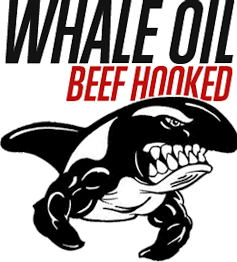Blogs are thriving in New Zealand thanks to threats to media freedom, an increasingly commercialised media environment, and shifts in media ownership.
The financial ownership of the major media companies, such as Fairfax and APN, has brought an exclusive focus on revenue streams and profits. As the JMAD New Zealand Media Ownership Report 2013 found, instead of concentrating on public interest stories, the mainstream media is trying to maximise page views and clicks. This, combined with the rapid decline in public affairs reporting, has left a gap in public interest reporting, which bloggers are now trying to fill.
The New Zealand government has given blogs powerful ammunition by threatening media and freedom of expression. Earlier this year, the government was caught spying on a Fairfax journalist with her phone records handed over to a parliamentary inquiry without her knowledge or consent. The government also passed legislation giving extra surveillance powers to the Government Communication Security Bureau (GCSB). By doing so, the security bureau has extended powers to gather intelligence on journalists as ordinary New Zealanders.
Against this backdrop, it’s not surprising political and current affairs blogs have started to gain prominence and influence. The blogs such as the right-wing Whale Oil and the Kiwiblog and left-wing The Standard and The Daily Blog, have reported to have increased their page views this year. The traffic to these blogs, as well as to some others, might continue to grow thanks to the parliamentary elections in 2014, but there is no way to forecast if the blogosphere will thrive beyond that.
Landmark ruling: a blog is not a news medium
Blogs gained more prominence again at the start of December, as a district court judge in Auckland ruled a blog is not a news medium, and therefore doesn’t have the same privileges as conventional news outlets.
The judge ordered Whale Oil blogger Cameron Slater to reveal sources for his story. This court case relates to a defamation case against Slater brought by a local businessman. Slater has indicated he will take his case to the High Court.

The court ruling raised fundamental questions about how we define blogs and news media, and bloggers and journalists. What makes the ruling more compelling is the fact that it was Slater’s blog that broke the news of Auckland Mayor Len Brown’s extramarital affair earlier on this year.
The New Zealand Law Commission’s report The News Media Meets ‘New Media’, published in March 2013, defines a news medium as “any agency whose business, or part of whose business, consists of a news activity”. It defines “news media” as an organisation that disseminates news, information and current affairs to public regularly and follows professional standards; respects truth and the public’s right to information; and is accountable to a code of ethics and a complaint process.
As an editorial in The New Zealand Herald noted “some blogs meet all those criteria except the last”. The editorial argued that “regular publication of news and views of general interest can be regarded as a medium deserving the rights and protections - and legal obligations - of all media”.
The ruling is an important one, as it might impact on how blogs are able to break news stories. If they fear they can’t protect their sources, they might not be able to break controversial stories.
What happens with more paywalls?
Prominence doesn’t equal longevity for blogs. Page views might be growing, but most blogs have low advertising income, are self-funded, sponsored or have some income through reader donations. It’s safe to argue that none of the Kiwi blogs are financially sustainable. This is not to say that blogs can’t raise substantial funding. Recently in the USA, the reader funding of Andrew Sullivan’s blog The Dish exceeded US$800,000.
Yet at the same time as blogs are gaining in page views, the digital readership numbers of online newspapers are increasing. For example, The New Zealand Herald’s overall brand audience has grown at the rate of 3% over the past three years to 1,375,000, and this growth has almost entirely come from the growth of digital readership.
It will be interesting to see what happens to blog and newspaper reading after the introduction of paid online content. APN has confirmed it will introduce a metered paywall for The New Zealand Herald early next year.
Some examples suggest the traffic from paid news sites, in the first instance, goes to their competitors with free access. For example, the British tabloid The Sun lost more than a third of its market share of internet visits just after it introduced a paywall. Not surprisingly, its competitor Mirror.co.uk gained 26% market share in the same period.

